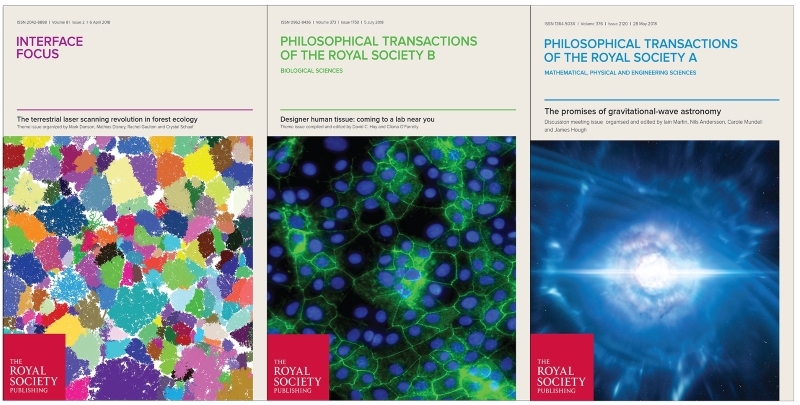Three of our journals (Philosophical Transactions A, Philosophical Transactions B and Interface Focus) only publish theme issues. Here, we look at some of the myths surrounding the process and how you can get involved.

Three of our journals (Philosophical Transactions A, Philosophical Transactions B and Interface Focus) only publish theme issues, which are collections of specially commissioned articles on a particular topic. Each issue is ‘Guest Edited’ by one or more experts in that field. Here, we look at some of the myths surrounding the process and how you can get involved.

We see our theme issues as a really exciting opportunity for a group of scientists to come together to create a high-quality resource that will be used for years to come, and to influence the direction of research in their field. The Guest Editors of each issue are the key to their success. The Editors are responsible for shaping the content and ensuring that the quality is high.
A summary of the reasons why people should consider becoming a Guest Editor is available on our website, but we wanted to debunk some rumours that we hear about this role.
MYTH: Issues have to be linked to meetings
Not true. A number of issues each year are linked to Royal Society meetings, and many others come from symposia at conferences, however plenty of issues are not linked to a meeting at all and are just proposed by the Guest Editors.
MYTH: You have to be invited to propose an issue
No, we welcome enquires from anyone that has a good idea for a topic.
MYTH: You have to be a Fellow of the Royal Society to be a Guest Editor
Definitely not true. Most of our Guest Editors are not linked to the Royal Society in any way.
MYTH: You have to be from the UK
Again no. Our Guest Editors (and our authors) come from all over the world.
MYTH: You have to be very senior and well-known
We welcome proposals from scientists at any stage in their career. However, you do need to have a good overview of your topic and a good network of contacts so that you are able to attract good authors. We think that a team of a senior researcher and a more junior one works well.
MYTH: It’s a lot of work
OK this one isn’t entirely untrue. It does require a bit of time and effort, but we think it is definitely worth it! We’ve been publishing theme issues for a long time and we have a lot of tools and processes in place to help make it as easy as possible for our Editors. Our dedicated in-house staff are always available to help with any problems and to chase up late submissions or reviewer reports. Our high-profile Editorial Board members are available to act as ‘mentors’ during your editing experience if needed.
To find out more about the benefits of guest editing an issue of one of our journals please visit our website.






